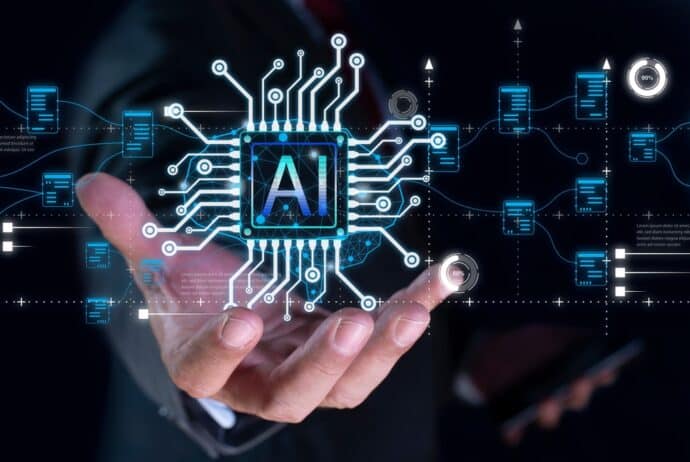Key Insights:
- Big Tech’s talent acquisitions challenge AI start-ups, limiting VC returns.
- AI start-ups struggle to scale, with founders returning to Big Tech.
- Regulatory bodies investigate Big Tech’s dominance in AI acquisitions.
In recent months, major technology companies have been increasingly acquiring key talent from promising artificial intelligence (AI) start-ups, signalling a shift in the competitive landscape. Microsoft, Google, and Amazon have each successfully hired top researchers and engineers from Inflection, Character.AI, and Adept, three start-ups that had collectively secured over $2 billion in funding. These acquisitions provide Big Tech with valuable intellectual property and human capital while leaving venture capitalists (VCs) with limited returns on their investments.
The financial outcomes of these talent acquisitions have been mixed, particularly for the venture capitalists who had initially invested in these start-ups. Character.AI, for instance, was valued at $1 billion in March 2023, but following the acquisition of its co-founders by Google, the company’s investors received a return of 2.5 times their original investment.
While this outcome might seem favourable, it falls short of the kind of returns VCs typically seek, especially considering the nearly $200 million invested in Character.AI since its inception in 2022.

CypherMindHQ.com Artificial Intelligence Crypto Trading System - Surpass the competition with this cutting-edge AI system! Utilize the prowess of innovative algorithms and amplify your crypto trading strategies with CypherMindHQ. Learn more today!
In contrast, the deals involving Microsoft, Inflection, Amazon, and Adept have been less lucrative for investors. Reports indicate that VCs involved in these transactions recovered only slightly more than their initial investments. This has raised concerns among investors about the challenges of achieving outsized returns in the current AI landscape.
As Mike Volpi, a partner at Index Ventures, commented,
“These are not good outcomes for VCs.”
The Challenges of Scaling AI Start-Ups
The absorption of these start-ups by larger tech companies underscores the difficulties AI start-ups face in scaling their operations. Building and maintaining cutting-edge AI models requires significant financial resources, something that even well-funded start-ups struggle to secure. Without access to extensive computing power and established distribution channels, many start-ups find it challenging to compete with industry giants.
Several founders who initially left Big Tech to start their own companies have now returned to these corporate giants. For example, Noam Shazeer and Daniel De Freitas, the co-founders of Character.AI, who initially left Google to create their start-up, have rejoined the tech behemoth.
Similarly, key leaders from Adept and Inflection, including Mustafa Suleyman, have returned to work for Amazon and Microsoft, respectively. This trend raises questions about the sustainability of independent AI start-ups in the current environment.
The Future of AI Start-Ups Amid Big Tech Dominance
The increasing dominance of Big Tech in the AI space is likely to shape the future of AI start-ups. According to David Cahn, a partner at Sequoia Capital, the next phase of AI development will be more focused on the physical infrastructure required to support advanced AI models, such as large-scale data centres. This shift may further advantage established tech companies with the resources to invest heavily in capital expenditures.
Over the past year, tech giants have significantly increased their capital expenditures, from $138 billion to $229 billion. These investments allow them to continue leading in AI research and development while making it increasingly difficult for smaller companies to keep up. Even start-ups that remain independent, such as Cohere and Mistral, are heavily reliant on partnerships with Big Tech for access to computing resources and customer bases.
Despite these challenges, there are still opportunities for venture-backed start-ups to succeed in niches within the broader AI industry. Smaller AI models, applications, and infrastructure projects may offer viable paths for growth, provided they can secure the necessary resources and partnerships.

CypherMindHQ.com Artificial Intelligence Crypto Trading System - Outpace the competition with this high-end AI system! Leverage the capabilities of progressive algorithms and enhance your crypto trading performance with CypherMindHQ. Learn more today!
As Raviraj Jain, a partner at Lightspeed Venture Partners, noted,
“There is still room for venture-backed start-ups to build smaller AI models, applications, and infrastructure.”
Potential Regulatory Scrutiny
Big Tech’s consolidation of talent and resources has not gone unnoticed by regulatory bodies. Antitrust authorities in the United States and Europe are currently examining the recent deals involving Amazon, Google, and Microsoft. These investigations may impact future transactions’ structure and lead to increased scrutiny of Big Tech’s influence in the AI industry.
In the UK, the Competition and Markets Authority (CMA) has initiated a probe into Microsoft’s deal with Inflection. This scrutiny reflects growing concerns about the potential for anti-competitive behaviour as major tech companies continue to dominate the AI sector. While regulatory interventions may alter the competitive landscape, the outcome remains uncertain.
The current environment presents both challenges and opportunities for AI start-ups. While Big Tech’s increasing involvement may limit the potential for outsized returns, there remains optimism that innovative companies can still carve out successful niches within the industry.



